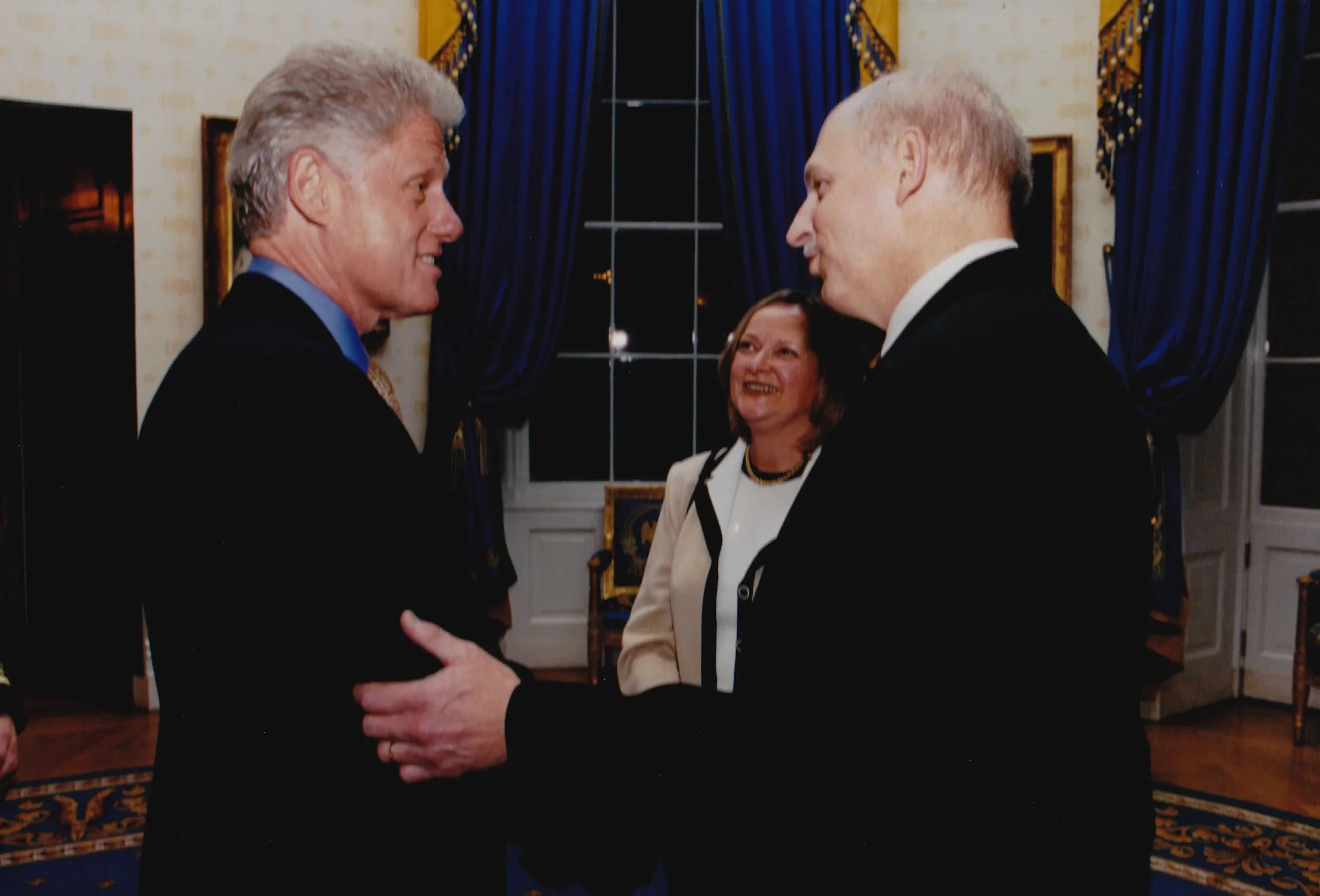Three Unexpected Lessons from President Bill Clinton
An Invitation to the White House
In 2000, New York Life—where I held a senior leadership role—sponsored a PBS series on U.S. presidents. As part of the launch, a small group of New York Life executives, including myself, was invited to a White House reception hosted by President Bill Clinton.
This was just months after Clinton’s impeachment hearings involving his relationship with White House intern Monica Lewinsky. Like many Americans, I was deeply disturbed: “A fifty-two-year-old married man having sex with a twenty-two-year-old girl was objectionable enough, but, to me, it was inexcusable for the leader of the modern world to become such a negative role model for the youth of the nation.”
Still, I believed there might be something to learn from meeting someone so brilliant and accomplished, yet so clearly flawed.
A Surprising First Lesson on Balance
After passing through security, we waited for the president in a ballroom while a small military band played. Ten minutes before his arrival, I noticed him on the bank lawn of the White House on the putting green—dressed in a jogging suit, casually putting golf balls across the green.
At the time, I was working 14-hour days, neglecting sleep, exercise, and my family. “If the president of the United States could take quiet private time to relax and refresh,” I thought, “why couldn’t I?” That image of him on the green stayed with me—a valuable reminder to prioritize balance and mental clarity. That was the first of three business lessons that day.
A Masterful Speaker
Later, we were escorted to the West Wing where Clinton gave a thirty-minute presentation—without notes—on historic events that had taken place in the very rooms we’d toured. Watching him up close was eye-opening: he was a gifted speaker with deep knowledge of American history.
Lesson Two: The Value of Honest Feedback
Following the talk, we moved to the East Room for a reception. President Clinton spent nearly fifteen minutes in conversation with my wife, Sue, and me. I'd heard he was a great conversationalist; now I experienced it firsthand. He was charismatic and fully present. We talked about New York Life, and when I mentioned that we had hired a former White House aide, he laughed and said:
“So you’re the guy who stole Sandy Kristoff from me.”
He added, “Sandy was one of my most trusted employees because she always told me what I needed to know instead of what I wanted to hear.”
That struck me. How often had I reacted poorly to bad news, discouraging honesty from my team? Clinton’s comment helped me realize: “Tell me what I need to know, not what I want to hear” had to become my new leadership mantra. This was lesson number two that evening.
Lesson Three: Planning a Purposeful Future
As we continued talking, the conversation shifted to India. His genuine passion for helping the people there—especially around poverty and infrastructure—was clear. His compassion was so sincere that “our disdain for his immoral behavior evaporated.” He had a good heart, and he was planning how to serve others after his presidency. If a man that busy could develop a purposeful post-retirement plan, so could I. Lesson number three was I needed to do similar planning that ultimately led me to early retirement to attend divinity school.
A Surprising Answer
Toward the end of the evening, I asked him about his interest in presidential history. He said he liked to consider why each president was the right person for the time. So I asked the obvious question, “Mr. President, how do you view your presidency in that regard?”
His response surprised me:
“I was the right man for the job at this particular time, because who else could tolerate what they’ve put me through?”
I inwardly bristled. What THEY put YOU through? I wanted to ask. But I held my tongue out of respect for the office.
A Final Reflection on Grace
Still, it brought me to one final insight. “We all possess the God-given free will to behave as we choose.” Even those in power are not immune to temptation. And while my sins were different, I too was a sinner, saved by God’s grace.
With that, something shifted in my view of the president, I felt compassion. “He was as fallible as the rest of us.” I forgave him—truly—and thanked God for the many lessons I’d received that night.


